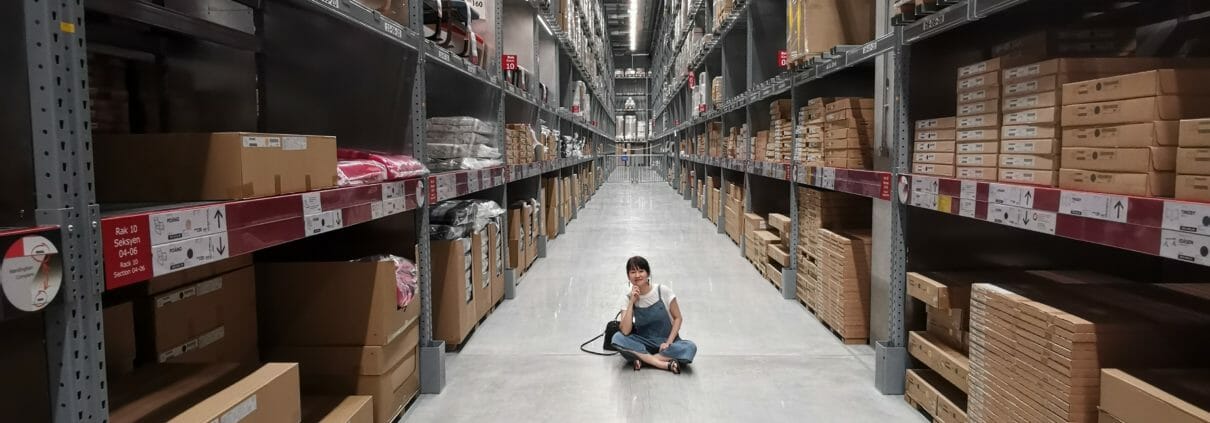Custom inventory solutions for the enterprise level business
There are many inventory management solutions out there, but many are ill-suited to the reality of enterprise level environments that currently exist on legacy systems, or lack the ability to integrate with entrenched ITSM using languages like .NET.
For these reasons, and more (which we will cover below), a third party proprietary inventory management software system won’t make the cut when stacked up against the vast scale and needs of the enterprise level.
The scope of inventory management
Inventory management software can either be used as a standalone system, or integrated within your ERP. A basic inventory management system would provide tools used for:
- Tracking products
- Alerting when product levels are low
- Barcode scanning
- Generating accurate accounting and financial data
There are many free inventory management software platforms that will offer most of the features listed above, but few include barcode scanning, and many lack reports that can integrate into a larger ERP system – and all are limited to a set number of transactions – such as 100 products in total, or 20 orders every month.
For any additional features, or the ability to scale up, these free software platforms will charge monthly fees, usually dependent on the number of users, number of products being managed, and number of orders processed.
For any company that operates at a scale larger than that of a startup or boutique, these pricing models can create exorbitant invoices for your company – and at the enterprise level, these solutions lack any form of ROI, and quickly become a burden to your bottom line.”
Even enterprise level software can fail to truly meet the standard of market fluidity national and multi-national brands face. While many ERP systems are designed to be customized to various industries, this is akin to designing your own app with a drag-and-drop software.
Options such as these also lack true integration within your environment – these platforms are intended to replace aspects of, or even the entirety of your enterprise environment, and not to work within the architecture your company has worked with for years.
Enterprise environments take years, sometimes even decades to truly be implemented, and they are continuously adapting and upgrading as technology improves and markets dictate more speed and customer value. Brands that can truly be classified as “enterprise level” are no different – cultivating a national or multinational brand is an undertaking that can take a full generation, and requires continuous observation and tinkering to keep growing, and stay relevant in the public’s eye.
For a brand that took twenty years to rise to the level that it is now, it is much smarter to invest in the future, rather than the present – and using an proprietary third party software for inventory management is investing for the short term rather than the long term.
Finally, many inventory management systems lack mobile integration – a necessity to maintain speed and efficiency in a truly connected enterprise environment.
Customized solutions increase efficiency
An inventory management system can do a lot more than tell you when levels are low on a certain product. With a custom platform fully integrated within the rest of your ERP environment, you can track detailed data points such as a product’s physical location in your warehouse, or the system can automatically determine the optimal time for re-ordering products: based on data points such as available shipping routes or closest supplier, and even down to weather patterns that might effect delivery schedules.
A more sophisticated inventory management system goes beyond tracking the sale of a type of product – with RFID integration, when scanned by your POS system, individual products can be tracked and recorded as they are sold. With data as intricate as this, a custom inventory platform is able to aggregate sales data in order to automatically generate reports that provide insight into optimal production times and when demand increases or decreases.
When working with a custom inventory management system, all of this data will automatically populate in their respective reports for your different departments, warehouses, and offices – whether spread throughout town, or across the globe. Via realtime integration, your service team in St. Louis will be aware of a part being shipped out from New Delhi, and your accounting firm in New York will receive the purchase order.
A system such as this provides you with a detailed view of the entire history of a product – from production to the final sale. This can be further broken down into the order history of each part, that when pieced together create a finished product – meaning you can analyze the intricacies of your entire operations through a single program.
Most importantly, all of these features can be accessed and utilized via mobile device – meaning your business developers out in the field have the latest data, and your CCO in Denmark has access to the latest numbers.
A major benefit to custom inventory management solutions is the fact that your internal IT department needn’t learn new systems architecture and languages, or restructure to fit the limitations of a piece of third party software – when built custom, languages that are commonly used throughout legacy systems, like .NET or COBOL are valid options. This isn’t so with proprietary software.
Improve customer value and satisfaction
A custom inventory platform, when fully integrated within your enterprise environment, is an efficient method for increasing your customer satisfaction. This is the ultimate goal of an inventory management system – customers can reliably count on your item stock, and B2B connections can trust your operations and records.
With the additional insight big data analytics can provide your production and sales, your enterprise can take the next leap towards continual improvement in efficiency.





Leave a Reply
Want to join the discussion?Feel free to contribute!